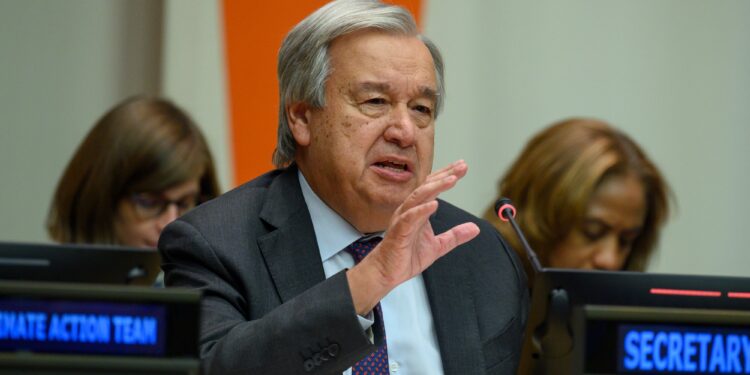On 24 January 2024, the Africans for the Horn of Africa Initiative (Af4HA), a coalition of African civil society organisations committed to working collectively on the crises in the Horn sent letters to United Nations Security Council (UNSC) member states urging them to strongly support the work of the International Criminal Court (ICC)’s current investigation in Sudan ahead of Prosecutor Karim Khan’s semi-annual briefing on the Darfur situation today.
At his last briefing to the UNSC in July 2024, the prosecutor announced that new investigations had been opened on recent crimes in Darfur. Investigations are focusing on extrajudicial killings, burning and looting of homes and markets, and sexual and gender-based crimes. He noted that since the 2005 UNSC referral of the Darfur case to the ICC under resolution 1593 “the disregard for international legal obligations, and the connected absence of any meaningful justice for the serious crimes committed in Darfur twenty years ago, have sown the seeds for this latest cycle of violence and suffering”.
While it is commendable that the prosecutor is pursuing these crimes, he is doing so in the shadow of unmet international legal obligations and a glaring absence of justice for the grave crimes perpetrated in Darfur two decades ago. The disheartening cycle of violence and suffering that has been reignited since April 2023 is, in part, driven by this impunity. Despite the escalating turmoil, the international community’s response to the conflict remains conspicuously muted.
The ICC has been investigating allegations of genocide, war crimes, and crimes against humanity committed in Sudan since 2002 since 2005, investigating. Six people were charged in relation to the situation, among them former President Omar Al Bashir,. The other five were Ali Muhammad Ali Abd-Al-Rahman commonly known as Ali Kushayb (the only one in the group whose case has proceeded to the trial stage), Ahmad Harun, Abdel Raheem Muhammad Hussein, Muhammad Hussein Abdallah Banda Abakaer Nourain (Abdallah Banda), and Bahar Idriss Abu Garda.
ALSO READ: Tales of torture and murder dominate hearing as trial of ex-Gambia minister winds down
The fact that only one case has proceeded to trial in two decades, has frustrated Sudanese victims.
Despite its referral of the situation, the Council has done little to support the ICC or accountability efforts more broadly over the years. Given the Council’s divided position on the Court, it seems unlikely that this support will be forthcoming in the near future. The backing for the ICC is dwindling, international law faces peril, and collaborative efforts for adherence to international human rights standards are on the decline globally.
Since 15 April 2023, the Sudanese Armed Forces led by General Abdel Fattah Al-Burhan, and the Rapid Support Forces led by Mohamed Hamdan Dagalo commonly known as “Hemedti ” have been fighting for control of the country. As the international community shifts its attention to the escalating conflict between Israel and Palestine, the situation in Sudan continues to worsen.The violence has claimed more than 12,000 lives and shows no signs of abating. It has driven over 10 million into displacement inside Sudan and into neighbouring countries. 3 million of them are children, the highest number of displaced children worldwide.
The conflict has been characterized by severe human rights violations, including those that are the focus of the prosecutor. The dire situation faced by civilians is further compounded by economic collapse and inadequate humanitarian aid, leading to a scarcity of essentials like food and water. Moreover, targeted attacks have been directed at health infrastructure, humanitarian workers, human rights advocates, and civil society. Humanitarian organizations face limited access due to insecurity and bureaucratic obstacles, limiting access.
Despite international and regional attempts to forge a lasting ceasefire, peace remains elusive. The high-profile international visits by Burhan and Hemedti show that the belligerents crave legitimacy, even as they continue to commit mass atrocities. They must see that they will be held accountable, not simply rewarded. The UNSC must support the court’s investigation to advance this accountability and send a clear message to belligerents that international crimes will not be tolerated. This will be critical for a long-term reduction in crimes. In the short term, however, the Council must urgently take action to protect civilians across the country from these crimes.
You Might Also Be Interested In: ICC: Why NGOs are concerned, not States
At the same time, the ICC itself must do more. Although its efforts offer the strongest international action on accountability, the court has proceeded slowly and has insufficiently engaged with Sudanese. It is unclear how the new investigations are progressing. Member states can engage with the court to show that they are invested and want to see progress. The ICC Prosecutor prioritised Sudan as one of his key tasks when assuming office, focusing on bringing ousted former president Bashir to justice. However, the lack of meaningful progress in the Sudan situation has been strongly criticised. The ICC must demonstrate a heightened commitment to its mandate by treating the situation in Sudan with the utmost seriousness. The ongoing conflict has resulted in widespread atrocities and grave human rights violations, demanding an earnest and robust response from the ICC.
The situation in Sudan is not only a human tragedy, it threatens to destabilise its neighbours across the region. The time for the Council to address this threat to international peace and security is now.
Janet Sankale is the Communication and Outreach Officer for Africans for the Horn, a solidarity platform established to amplify citizen action and voice in the response to, and resolution of, the crises that increasingly plague the Horn of Africa.







